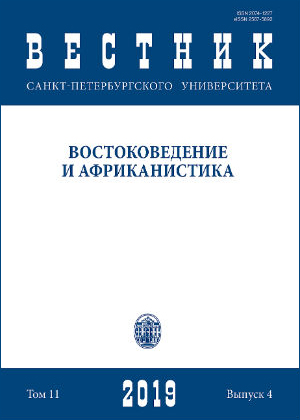Modern Position of the Traditional Ngoni Leaders (сross-cultural Research Experience)
DOI:
https://doi.org/10.21638/spbu13.2019.409Abstract
This article is devoted to analysis of public opinion regarding the activity and position of traditional leaders of the Ngoni ethnic community using data from sociological surveys of the Afrobarometer 2005–2015. Apart from the Ngoni respondents as monitoring category, Chewa, Yao, Nyanja, and Tumbuka people, whose languages are currently spoken by the majority of the Ngoni, were also integrated into the survey. First and foremost, in all the ethnic communities under consideration, democratic attitudes of the respondent’s majority are being revealed, since nepotism and autocracy were condemned. It is necessary to highlight the care towards the traditional leader’s political neutrality (they have to remain non-party, to receive salaries from the government and to serve on the local government council, participating in the elections for this). According to the fact, there is no ethnical specificity in the evaluation of the activities done by the traditional leaders as well as the elected politicians. The direction of the leader’s authority is rather limited: resolving local disputes and land distribution only. The Ngoni traditional leaders have credibility of high level, approval of their authority and influence that according to respondent’s expectations will increase in future. It is possible to predict that the borders between elected politicians and the Ngoni traditional leaders will gradually vanish. Maintaining self-identification of those who identify themselves as Ngoni to a greater extent than the performance of basic administrative functions by traditional leaders is facilitated by their activities in organizing cultural festivals and reviving Chingoni language.
Keywords:
Ngoni, traditional leader, ethnic self-identification, public opinion analysis, Sub- Saharan Africa
Downloads
References
Downloads
Published
How to Cite
Issue
Section
License
Articles of "Vestnik of Saint Petersburg University. Asian and African Studies" are open access distributed under the terms of the License Agreement with Saint Petersburg State University, which permits to the authors unrestricted distribution and self-archiving free of charge.





